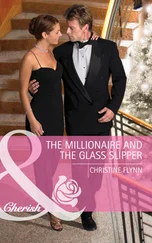—
When he sees Freeman again, two weeks later, he knows what she’s going to say before she says it. “I have some bad news,” she tells him when she sits down. “That woman you asked me to look up, Olivia Collins. She died last month.”
“Oh,” he says. But he already knew this, he realizes. He’s seen Olivia twice now, once in the commissary and once in the yard, where she was engaged in conversation with Yvette Bertolli.
“I’m sorry,” Freeman says, and launches into her questions.
“Can I ask you something?” he asks a little later, interrupting a line of tedious questioning about account statements.
“Go ahead.”
“Why do you want to write about all this?”
“I’ve always had an interest in mass delusion,” she says. “My senior thesis was about a cult in Texas.”
“I’m not sure I follow.”
“Well, look at it this way. I believe we’re in agreement that it should have been obvious to any sophisticated investor that you were running a fraudulent scheme.”
“I’ve always maintained that,” Alkaitis says.
“So in order for your scheme to succeed for as long as it did, a great many people had to believe in a story that didn’t actually make sense. But everyone was making money, so no one cared, except Ella Kaspersky.”
“People believe in all kinds of things,” he said. “Just because it’s a delusion doesn’t mean it can’t make real money for people. You want to talk about mass delusions, I know a lot of guys who got rich off of subprime mortgages.”
“Is it fair to call you the embodiment of the era, do you think?”
“That seems a little harsh, Julie. I didn’t cause a global economic meltdown. I was as much a victim of the economic collapse as anyone. By the time Lehman Brothers folded, I knew I couldn’t keep it going much longer.”
“I’d like to ask you about Ella Kaspersky,” Freeman says.
“Not my favorite person in the world.”
“Do you remember your first meeting with her?”
He met Kaspersky in 1999, at the Hotel Caiette. The trip was ill-starred from the beginning. Suzanne was sick by then and had stayed home in New York, and by the time he arrived at the hotel he was already regretting going out there and thinking about cutting the trip short. But he needed investors, so he’d been spending a week of every month away from New York City, trawling club drawing rooms and hotel bars. He liked the Hotel Caiette in particular, because the fact that he owned the property lent instant credibility: Look, here we are having a conversation under a roof that I own. Not that he played any role whatsoever in the management of the place, but that wasn’t important.
On that visit to the Hotel Caiette he came downstairs on his second evening and there was Ella Kaspersky, an elegant woman in early middle age, drinking whiskey in an armchair and gazing out at the twilight luminescence of the inlet, the reflection of the lobby rising to the surface of the glass. Alkaitis positioned himself nearby, nodded when she glanced at him. What did they talk about? Italy, if he remembers correctly. She was an art collector. She didn’t work. She traveled, she studied languages, she went to auctions and art fairs. She’d just spent three months studying Italian in Rome, and so they went off together on an extended tangent about the pleasures of Italy before the conversation turned to what he did for a living. She was interested. It emerged quite naturally that she had money to invest; her father, who’d died only a few months earlier, had bequeathed most of his fortune to their family’s charitable foundation, and Ella was involved in the foundation’s investment decisions.
“Tell me about your investment strategy,” she said.
He went into it in some detail. He told her he was using the split-strike conversion strategy, which involved buying a collection of stocks along with option contracts to sell those stocks at a set price later, thus minimizing risk. He timed these purchases according to fluctuations in the market, he told her, sometimes pulling out of the market altogether to invest his clients’ money in government-backed securities, U.S. Treasury bills and such, reentering the market when the time seemed right. She gave the impression of listening intently, but she was at least three drinks in by then and he wouldn’t have guessed that she’d retained everything he’d said, until a letter arrived at his New York office a few weeks later. She’d done some research on his trading strategy and methods. She’d analyzed the performance of a fund that he managed. She’d spoken with two experts on the investment strategy he claimed to be using, neither of whom could explain to her how Alkaitis’s returns were so high and so smooth; she was aware of two mutual funds who employed the same strategy, but their returns were much more volatile than his. She was puzzled by his ability to trade stocks in such quantities without affecting the stock prices. His returns would seem to require an almost psychic knowledge of when the market was going to fall. “I don’t wish to imply,” she wrote, “that I’m entirely closed to the possibility of mystery in the universe, or that I’m unprepared to accept the existence of unusual talent, even outright genius, when it comes to predicting the movement of markets, and yet one can’t help but note that your trading strategy, as practiced at the scale at which you seem to practice it, would require more OEX put options than actually exist on the Chicago Board Options Exchange.” On a personal note, perhaps he could understand her horror when she made inquiries and discovered that her family’s private foundation—which, she wasn’t sure if she’d mentioned this in Caiette, had been founded for the purpose of funding research into colon cancer, which had killed her mother a decade ago—was already heavily invested in Alkaitis’s fund. “Naturally,” she wrote, “I took the matter to the foundation’s director, who shared my alarm and immediately sent you a withdrawal request. Thus disaster was averted, but it is personally appalling to me to consider how close my family’s foundation came to being wiped out. How terrible to think of my parents’ legacy having been so imperiled.” She’d taken the liberty of forwarding a copy of her letter to the SEC.
Alkaitis called Enrico into his office. It was interesting to observe Enrico as he read Kaspersky’s letter; his face didn’t change, but his hands shook a little. He sighed as he handed it back.
“She can’t prove any of this,” Enrico said. “It’s innuendo and speculation.”
“She sent this to the SEC. They could walk in at any minute.”
“We’ll jump off that bridge when we come to it, boss.” Something that occurs to Alkaitis only much later, a few years into his new life at FCI Florence Medium 1: Why didn’t Enrico leave then? In the winter of 1999, with Ella Kaspersky’s having figured it out?
In any event, in the version of history that he gives to Julie Freeman in the prison interview, he shows Kaspersky’s letter to no one.
“So what happened next?” Freeman asks.
“We got a letter from the SEC. They were opening an investigation.”
“Why didn’t they catch you?”
“I don’t know, to be honest. They were incompetent or they didn’t care, or both. I assumed they’d catch us. All it would’ve taken was a phone call. Literally one phone call, and they could’ve confirmed there were no trades taking place.”
“And by ‘us,’ you mean you and your staff.”
“What?”
“‘I assumed they’d catch us,’ you said.”
“I misspoke. I meant me.”
“I see. Must have been something of a pleasant shock, when they closed the investigation without catching you.”
Читать дальше












